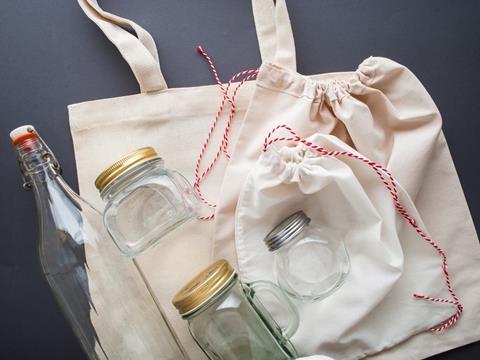
The Ellen MacArthur Foundation’s Plastics Initiative is collaborating with reuse partners and experts to model a vision for the future of scaled returnable packaging systems.
Future visualisation and analytical modelling are being used to predict the economic, environmental, and experiential performance of scaled reuse systems in comparison to single-use alternatives. Additionally, partners from various sectors are contributing their own knowledge and skillsets in the hopes of identifying new areas of progress.
The work’s conclusion is set to be finalised over the coming months and the full modelling results published with a technical appendix later in the year.
The Foundation asserts that scalable solutions that do not need to be delivered in single-use packaging are essential to break the correlation between business growth and plastic use. It also believes in the importance of a standardised vision for the future of returnable packaging, shared understanding, improved data, and a united stance to bring to policymakers – all of which are expected to help reusables compete with single-use packaging.
Although refillable and returnable packaging pilots are thought to be increasing in number and making positive progress, the Foundation emphasises that isolated projects cannot make large-scale economic or social impacts. Therefore, it is pushing for system design at scale to help drive the development of a widespread returnable system.
“Danone is committed to accelerating returnable models and reuse is one of the key levers to achieve our renewed sustainability ambition - Danone Impact Journey,” explains Nicolas Gregoire, VP, Packaging Cycle, Danone. “Today, more than 50% of our global water volumes are sold in reusable format and we have more than 15 pilot projects on reuse/refill models in our portfolio.
“This study, launched by the Ellen MacArthur Foundation, paves the way for profitable scale-up, stressing the need for an industry-wide approach to address the challenge. We are happy to participate and share our learnings across categories and geographies.”
Jolanda de Rooij, senior sustainability manager Circular Economy at Unilever, continues: “Turning the ‘reuse revolution’ ambition into a reality requires cross-industry collaboration. We’re pleased to be working with the Ellen MacArthur Foundation and other industry partners to explore the economic, environmental, and experiential impacts of reuse models versus single-use.
“Only by better understanding these important variables can we make the case for scaling these systems all the more compelling.”
“The Ellen MacArthur Foundation’s Plastics Initiative and its work to study how to efficiently scale reuse will be a meaningful tool for PepsiCo and other companies committed to expanding reuse options in our portfolios,” adds Anke Boykin, senior director, Global Environmental Policy at PepsiCo. “The systemic change needed to reduce packaging waste requires innovation, collaboration, and commitment across the entire value chain, and so it has been important for PepsiCo to be part of these efforts.
“Better understanding of the size, scale, and impact of different scenarios of reuse across products, companies, and industries can help play a critical role in addressing this global challenge.”
Back in 2022, the Foundation worked alongside WWF to found the Business Coalition for a Global Plastics Treaty, featuring 83 international businesses across the plastics value chain, financial institutions, and NGOs. It aims to tackle environmental pollution, close the loop on plastic packaging, and establish a single and consistent set of rules and targets for all member states to abide by.
More recently, Aldi became the latest member of Unpackaged’s Refill Coalition – joining Ocado, Waitrose & Partners, and CHEP in their efforts to reduce single-use plastic packaging in retail by developing an alternative refill solution.
A consumer research project run by City to Sea and Re by Beauty Kitchen also reports that consumers are interested in circular packaging systems for retail products and suggests prefilled returnable packaging as the ideal solution.
If you liked this article, you might also enjoy:
The Lidl approach to packaging sustainability
How did Brazil achieve its 100% aluminium can recycling rate – and can it be replicated in the EU?
Experts have their say on the EU’s Packaging and Packaging Waste Directive revisions
A deep dive into the most important packaging sustainability trends and solution














No comments yet